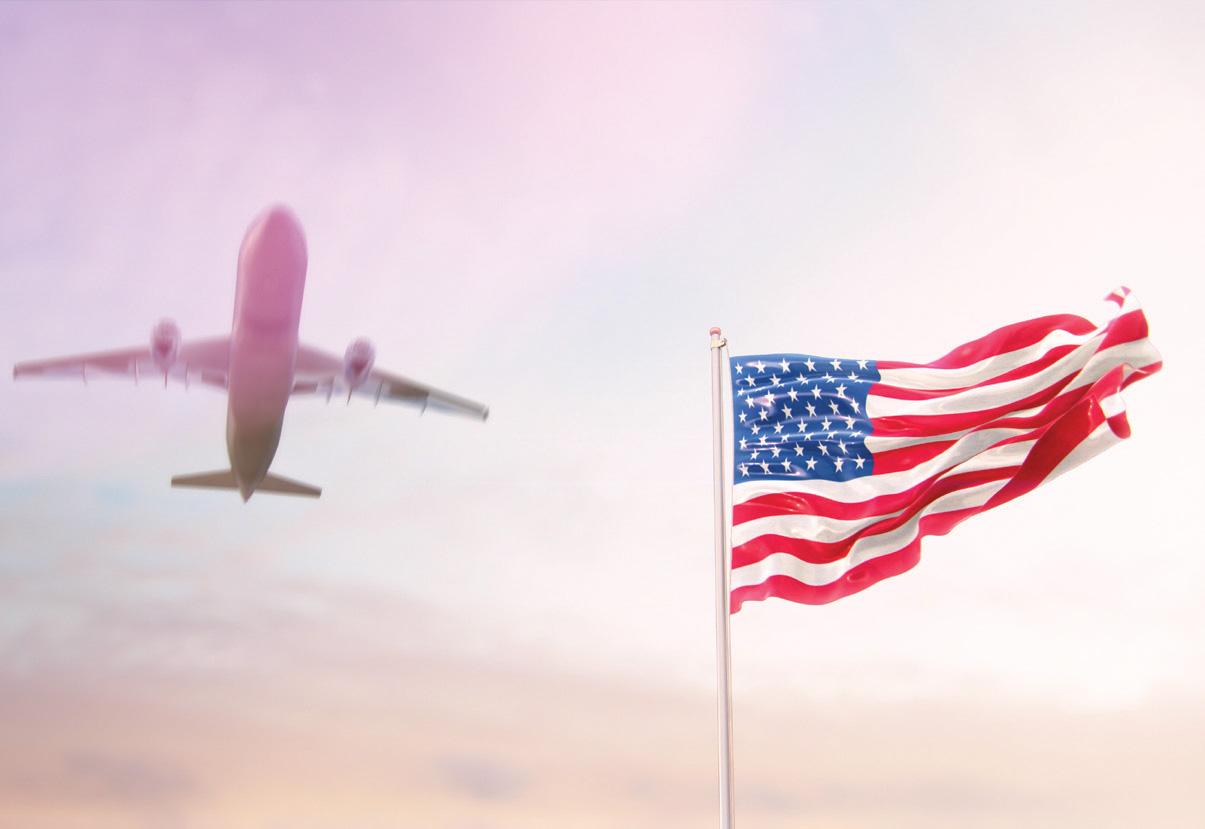Analysis: The US urgently requires a national air transportation policy

The airline industry is the one industry upon which virtually every other industry depends to service its customers and grow its businesses. Likewise, its fortunes are highly leveraged vis-à-vis stakeholders such as consumers, workers, investors and taxpayers, and adjacent interests such as the airplane manufacturing, airport, rental car, ride hailing, hotel and restaurant industries. The COVID-19 catastrophe has elevated the visibility of the importance of this infrastructure and has created a rare opportunity for transformational reform to address decades of mounting problems.
There has never been an airline industry collapse on the scale we are witnessing in the wake of the current public health crisis. It has laid bare many outdated, public-policy critical assumptions and concepts, such as the market will solve all problems. The pandemic will plague the industry for years and its unsustainable model, if not replaced, will require decades-long ongoing and significant sacrifices by taxpayers, labor, consumers and other stakeholders, and cause significant collateral damage to travel and tourism industry jobs.
The crisis also amplifies the reality that in recent years, the airline industry paradigm has increasingly failed to solve mounting problems. Instead, it is helping create them. The purpose of any model, or paradigm, is to solve problems and generate benefits. In the case of commercial aviation’s early days, people became more connected, cultures became better understood, and diplomacy and commerce were more efficiently facilitated.
Furthermore, US-led deregulation of airline industry markets around the world democratized air travel, led to greatly expanded job markets and drove unprecedented economic growth. Moreover, while economists tend to agree on little, virtually all of them do agree that some markets work well, some not so well and some not at all. I am certain that there would be near-universal agreement that the US airline industry falls somewhere between “not so well” and “not at all.”
There is increasing agreement with the conclusion that the current industry paradigm is inadequate. For example, ask flight attendants if they are satisfied with management’s attention to cabin air quality, or ask communities that have lost air service because of industry consolidation, or airports that need passenger facility charges for upgrades, or consumers asked to pay $200 change fees.
Of course, all those problems predate the coronavirus. Some observers argue COVID-19 is a black swan occurrence—an event of catastrophic consequences that could not be predicted. However, in addition to numerous scientists and medical professionals, US Presidents Bush and Obama in 2005 and 2014, respectively, sternly warned about being prepared for future pandemics. So, if experts, presidents and the global insurance industry raised red flags, is it really a black swan event?
So, with a growing number of stakeholders open to discussing transformational reform of the airline industry, what should be done? We need a process that leads for the first time to a US national air transportation policy. Yes, the US has important component parts, such as the Civil Reserve Air Fleet, Essential Air Service and Open Skies programs, but a comprehensive, coherent and cohesive national policy? No, not at this time.
The airline industry requires a new purpose-built model designed to solve current problems, and one in which market forces are allowed to do what they do best—match what consumers want with what airlines provide at competitive prices—while governments impose the minimum oversight necessary to deal with unforeseeable catastrophes and market failures.
A national air transportation policy would neither seek to return to regulating the size of sandwiches nor prescriptively divine the appropriate fee for a checked bag. Rather, such a policy would establish an aviation industry mission and desired outcomes for the country, and codify agreed principles, priorities and structural reforms. It would take onboard federal oversight programs that are working with modernized consumer, labor and antitrust laws.
Following a national air transportation policy signed into law, many backlogged issues would be able to be resolved. Examples of contentious issues that have hamstrung airlines, distributors, labor and consumers include the role of outsourcing, foreign ownership of US airlines, airline joint venture antitrust immunity, foreign carrier new entry, a consumer’s private right of action, and product and price transparency.
I propose a two-phase process. First, a public-private panel of current and former industry, labor, consumer and government officials representing the stakeholders enumerated above would meet virtually to catalog current benefits and problems with airline industry and government oversight models, and to preliminarily develop and vet reform proposals.
Second, the work product of the panel would be shared with Congress to consider, debate and enact legislation, based on the panel’s recommendations, and would include FAA oversight reforms currently under consideration.
Kevin Mitchell is chairman of the US Business Travel Coalition. The views expressed here are his own.